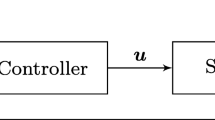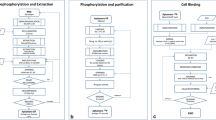Abstract
The vast majority of the project scheduling research efforts over the past several years have concentrated on the development of workable predictive baseline schedules, assuming complete information and a static and deterministic environment. During execution, however, a project may be subject to numerous schedule disruptions. Proactive-reactive project scheduling procedures try to cope with these disruptions through the combination of a proactive scheduling procedure for generating predictive baseline schedules that are hopefully robust in that they incorporate safety time to absorb anticipated disruptions with a reactive procedure that is invoked when a schedule breakage occurs during project execution.
In this paper we discuss the results obtained by a large experimental design set up to evaluate several predictive-reactive resource-constrained project scheduling procedures under the composite objective of maximizing both the schedule stability and the timely project completion probability.
Similar content being viewed by others
References
Artigues, C., & Roubellat, F. (2000). A polynomial activity insertion algorithm in a multi-resource schedule with cumulative constraints and multiple modes. European Journal of Operational Research, 127, 294–316.
Aytug, H., Lawley, M., McKay, K., Mohan, S., & Uzsoy, R. (2005). Executing production schedules in the face of uncertainties: A review and some future directions. European Journal of Operational Research, 161(1), 86–110.
Blazewicz, J., Lenstra, J., & Kan, A.R. (1983). Scheduling subject to resource constraints—classification and complexity. Discrete Applied Mathematics, 5, 11–24.
Brucker, P., Drexl, A., Möhring, R., Neumann, K., & Pesch, E. (1999). Resource-constrained project scheduling: Notation, classification, models and methods. European Journal of Operational Research, 112, 3–41.
Davenport, A., & Beck, J. (2002). A survey of techniques for scheduling with uncertainty. Unpublished manuscript.
Davis, E., & Patterson, J. (1975). A comparison of heuristic and optimum solutions in resource-constrained project scheduling. Management Science, 21, 944–955.
Demeulemeester, E., & Herroelen, W. (1992). A branch-and-bound procedure for the multiple resource-constrained project scheduling problem. Management Science, 38, 1803–1818.
Demeulemeester, E., & Herroelen, W. (1997). New benchmark results for the resource-constrained project scheduling problem. Management Science, 43, 1485–1492.
Demeulemeester, E., & Herroelen, W. (2002). International series in operations research & management science: Vol. 49. Project scheduling—A research handbook. Boston: Kluwer Academic.
Demeulemeester, E., Vanhoucke, M., & Herroelen, W. (2003). RanGen: A random network generator for activity-on-the-node networks. Journal of Scheduling, 6, 17–38.
Goldratt, E. (1997). Critical chain. North River: Great Barrington.
Hagstrom, J. (1988). Computational complexity of PERT problems. Computers and Operations Research, 18, 139–147.
Herroelen, W., De Reyck, B., & Demeulemeester, E. (1998). Resource-constrained scheduling: a survey of recent developments. Computers and Operations Research, 25, 279–302.
Herroelen, W., De Reyck, B., & Demeulemeester, E. (2000). On the paper “Resource-constrained project scheduling: notation, classification, models and methods” by Brucker et al., European Journal of Operational Research, 128(3), 221–230.
Herroelen, W., & Leus, R. (2005). Project scheduling under uncertainty—Survey and research potentials. European Journal of Operational Research, 165, 289–306.
Hoogeveen, H. (2005). Multicriteria scheduling. European Journal of Operational Research, 167(3), 592–623.
Igelmund, G., & Radermacher, F. (1983a). Algorithmic approaches to preselective strategies for stochastic scheduling problems. Networks, 13, 29–48.
Igelmund, G., & Radermacher, F. (1983b). Preselective strategies for the optimization of stochastic project networks under resource constraints. Networks, 13, 1–28.
Kolisch, R. (1996). Efficient priority rules for the resource-constrained project scheduling problem. Journal of Operations Management, 14, 179–192.
Kolisch, R., & Hartmann, S. (1999). Heuristic algorithms for solving the resource-constrained project scheduling problem: classification and computational analysis. In: J. Weglarz (Ed.), Project scheduling: Recent models, algorithms and applications, Dordrecht: Kluwer Academic.
Kolisch, R., & Padman, R. (1999). An integrated survey of deterministic project scheduling. Omega, 49, 249–272.
Leus, R. (2003). The generation of stable project plans. PhD thesis, Department of Applied Economics, Katholieke Universiteit Leuven, Belgium.
Leus, R., & Herroelen, W. (2005). The complexity of machine scheduling for stability with a single disrupted job. Operations Research Letters, 33, 151–156.
Mastor, A. (1970). An experimental and comparative evaluation of production line balancing techniques. Management Science, 16, 728–746.
Mehta, S., & Uzsoy, R. (1998). Predictive scheduling of a job shop subject to breakdowns. IEEE Transactions on Robotics and Automation, 14, 365–378.
Möhring, R., Radermacher, F., & Weiss, G. (1984). Stochastic scheduling problems, I: Set strategies. Zeitschrift für Operations Research, 28, 193–260.
Möhring, R., Radermacher, F., & Weiss, G. (1985). Stochastic scheduling problems, II: General strategies. Zeitschrift für Operations Research, 29, 65–104.
Pascoe, T. (1966). Allocations of resources c.p.m. Revue Française de Recherche Opérationelle, 38, 31–38.
Patterson, J. (1976). Project scheduling: the effects of problem structure on heuristic scheduling. Naval Research Logistics, 23, 95–123.
Stork, F. (2001). Stochastic resource-constrained project scheduling. PhD thesis, School of Mathematics and Natural Sciences, Technical University of Berlin.
Van de Vonder, S., Demeulemeester, E., Herroelen, W., & Leus, R. (2005). The use of buffers in project management: The trade-off between stability and makespan. International Journal of Production Economics, 97, 227–240.
Van de Vonder, S., Demeulemeester, E., Herroelen, W., & Leus, R. (2006). The trade-off between stability and makespan in resource-constrained project scheduling. International Journal of Production Research, 44(2), 215–236.
Vanhoucke, M., Demeulemeester, E., & Herroelen, W. (2001). An exact procedure for the resource-constrained weighted earliness-tardiness project scheduling problem. Annals of Operations Research, 102, 179–196.
Wang, J. (2005). Constraint-based schedule repair for product development projects with time-limited constraints. International Journal of Production Economics, 95, 399–414.
Zhu, G., Bard, J., & Yu, G. (2005). Disruption management for resource-constrained project scheduling. Journal of the Operational Research Society, 56, 365–381.
Author information
Authors and Affiliations
Corresponding author
Rights and permissions
About this article
Cite this article
Van de Vonder, S., Demeulemeester, E. & Herroelen, W. A classification of predictive-reactive project scheduling procedures. J Sched 10, 195–207 (2007). https://doi.org/10.1007/s10951-007-0011-2
Published:
Issue Date:
DOI: https://doi.org/10.1007/s10951-007-0011-2




